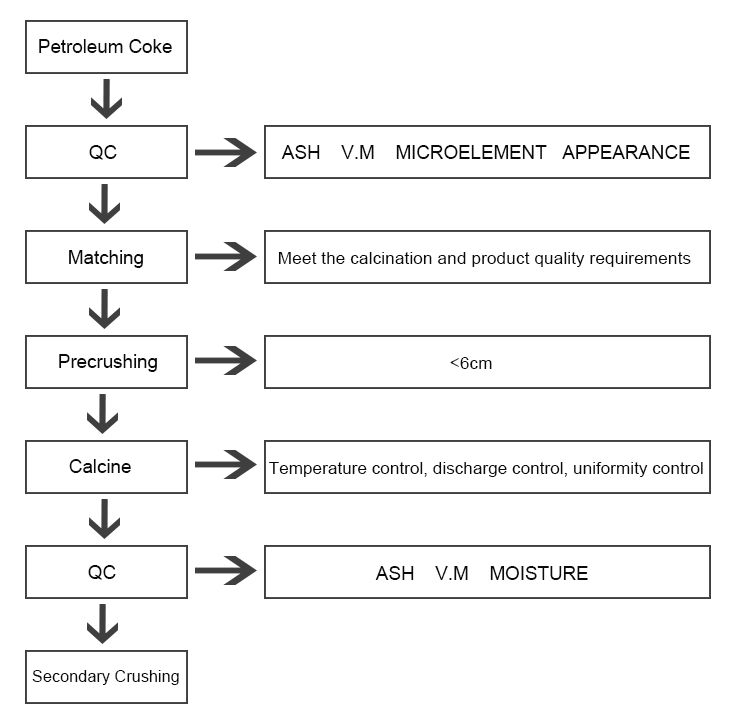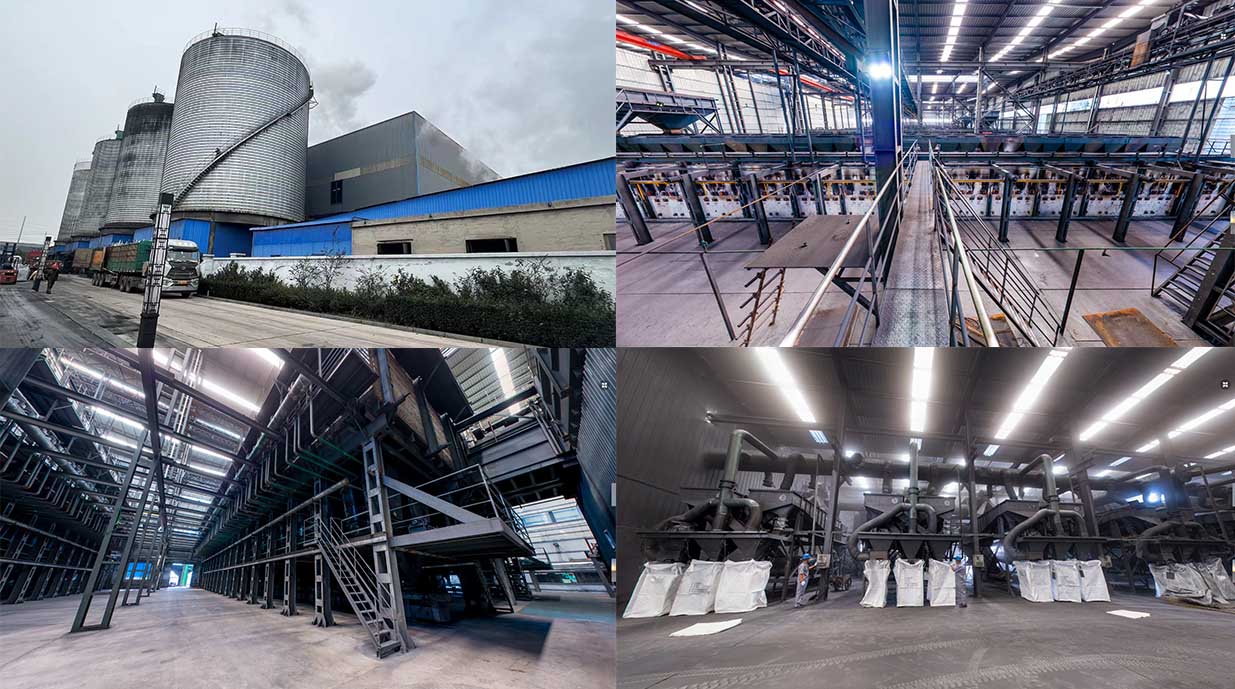Production Technology Of Calcined Coke Products
Calcined petroleum coke (CPC) is a high-quality carbon material derived from petroleum residue (also known as green coke). It is produced through the process of calcination, which involves heating green coke to high temperatures in order to remove impurities and volatile matter, resulting in a pure carbon product with a high carbon content. The production process of Calcined petroleum coke typically involves the following steps:
Petroleum Coke Preparation: Raw petroleum coke is obtained from petroleum refineries as a byproduct of the distillation process. It is a solid carbon-rich material with a high calorific value.
Crushing and Grinding: The raw petroleum coke is typically crushed and ground into a fine powder. This is done to increase the surface area of the coke particles, which aids in the subsequent calcination process.
Blending: Depending on the desired properties of the final product, different grades and types of petroleum coke may be blended together. This is done to achieve the desired carbon content and other specifications.
Calcination: The powdered petroleum coke is then subjected to high temperatures in a calcination kiln or rotary kiln. The temperature typically ranges between 1200 to 1350 degrees Celsius (2200 to 2500 degrees Fahrenheit). The calcination process removes moisture, volatile matter, and other impurities from the coke, resulting in a highly carbonized material. The calcination process also improves the mechanical strength and electrical conductivity of the coke.
Cooling: After calcination, the hot calcined petroleum coke is cooled either by direct contact with water or by indirect cooling methods, such as air cooling. The cooling process stabilizes the coke and reduces its temperature to a suitable level for handling and storage.
Screening and Sizing: The cooled calcined coke is then screened to remove oversized particles and impurities. The coke is also typically sized to meet specific requirements, such as particle size distribution and bulk density.
Quality Control: The final calcined petroleum coke product undergoes rigorous quality control testing to ensure it meets the desired specifications. This may include testing for carbon content, sulfur content, ash content, volatile matter, and other parameters.
Packaging and Storage: The calcined petroleum coke is packaged and stored in appropriate containers or bags to prevent moisture absorption and maintain its quality. It is commonly transported in bulk or packed in bags for shipment to various industries, such as aluminum smelters, steel producers, and carbon electrode manufacturers.
It is important to note that the exact production process may vary slightly between different manufacturers and refineries, but the general steps outlined above provide a good overview of the typical process for producing calcined petroleum coke.
The role of calcined coke(CPC) in different factories
Calcined coke, also known as petroleum coke, is a critical raw material used in various industries, particularly in the production of aluminum, steel, and carbon electrodes. Here are some potential advantages associated with calcined coke:
High carbon content: Calcined coke is characterized by its high carbon content, typically ranging from 98% to 99.5%. This high carbon content makes it an excellent fuel source for industrial processes that require high heat and carbon-rich materials.
Energy efficiency: Calcined coke has a high calorific value, meaning it releases a significant amount of energy when burned. This makes it an efficient fuel for processes such as power generation or heat-intensive applications in industries like cement, glass, and metal production.
Reduced environmental impact: Compared to alternative fuels like coal, calcined coke typically has lower sulfur and nitrogen content. This lower sulfur content results in reduced emissions of sulfur dioxide (SO2) when used as a fuel, which can contribute to improved air quality and reduced environmental impact.
Cost-effectiveness: Calcined coke is often economically advantageous due to its competitive pricing compared to other carbon sources. Its availability and relatively low cost, especially in regions with ample petroleum refining facilities, make it an attractive choice for industries that require carbon-rich materials.
Process stability and quality control: Calcined coke is produced through a controlled and tightly regulated process that ensures consistent quality and properties. This allows for predictable and reliable performance in industrial processes, enabling better control over production outcomes and product quality.
It's important to note that the advantages of calcined coke may vary depending on the specific application, industry requirements, and regional factors. Additionally, it's crucial to consider environmental sustainability and regulatory compliance when evaluating the overall benefits and impacts of using calcined coke as a fuel or raw material.











